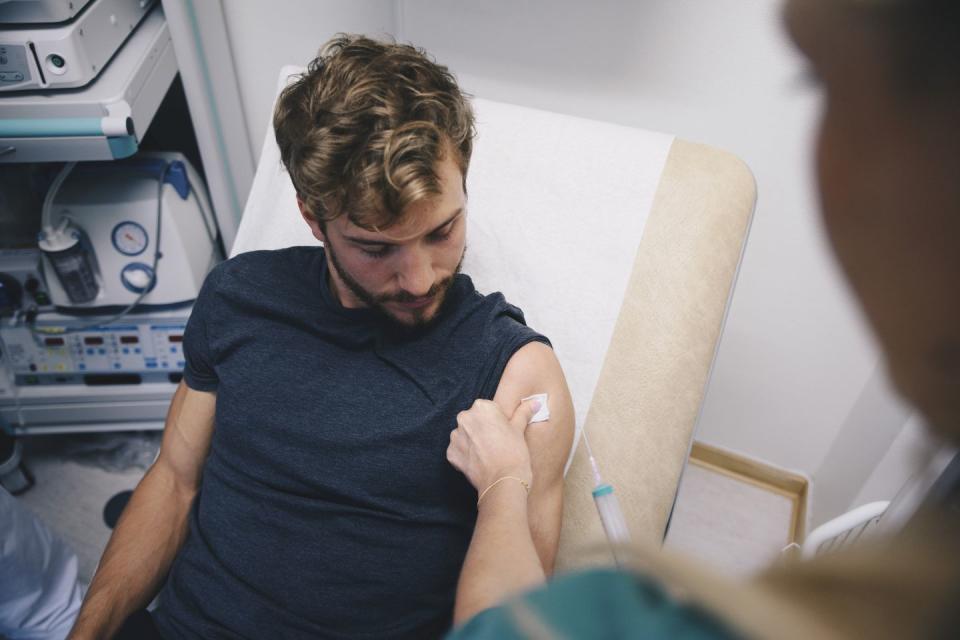We're one step closer to a male contraceptive pill as it passes initial tests

The female body is the one that grows a baby, which is why historically it's always the woman who's been the first port of call for interfering with her hormones to avoid a pregnancy.
But after years of development, a revolutionary male contraceptive pill has passed initial stages of testing, bringing it one step closer to being a real life, viable option for family planning, and not just a fantastical concept.
TIME reports the early research, which was designed more to test the safety of the pill rather than its competency at preventing pregnancy, yielded positive results in the 30 men who trialled the contraceptive drug. In the study, none of the men suffered any serious issues, with only some minor symptoms reported including low-level erectile dysfunction, fatigue, acne, headaches, and reduced libido - all of which mirror the side effects of the female pill.
The pill in question works in a similar way to the female contraceptive pill, containing a mix of hormones. The male pill consists of testosterone and progestin (a synthetic version of the female hormone progesterone), whereas the female version typically has oestrogen, not testosterone.
Another difference between the two is the frequency with which the pill must be taken. The female contraceptive pill is usually taken for 21 days, with a seven day grace period, although recent advice suggests this break is not actually necessary. The male pill must be taken for 28 days straight because of the necessity of keeping sperm count low, or you'd risk pregnancy.
Dr. Christina Wang, a lead researcher at LA BioMed who's working on the development of the male contraceptive pill, says it's about time more male contraceptive options were introduced into the market. Currently, only condoms (which do not always work and can be misused) or a vasectomy, which is permanent, are the available choices - and Dr Wang believes it's far too limited.

"In females you have many, many methods. You have the pill, you have the patch, you have the vaginal ring, you have intrauterine devices, injections," she said. "In men there is nothing that is like hormonal contraception. The standard is not equal for the genders."
While the male pill is on its way to proper development (though it may still be around a decade until it's available to use, according to Dr Wang), there are various other options being explored for a hormonal male contraception. Another, slightly different, pill is being explored, as is a contraceptive gel that could be applied every day to a man's shoulders and arms, according to TIME.
And then there's the contraceptive injection for men, but you might remember the stumbling blocks that one came across when it was tested back in 2016. The University of Edinburgh began a research study into the effectiveness of the injection, but swiftly had to call time on it because the men taking part experienced some of the exact side effects that women suffer regularly.

Some of the participants experienced "changes in mood", while others noted "acne, pain or panic at first injections, palpitations, hypertension, and erectile dysfunction", and the study was halted. Er, welcome to our world?!
It's a promising development that, despite similar symptoms being evident in this recent male pill trial, the tests were passed and studies will proceed. Perhaps in the next decade or so, things might even up in the world of contraception.
Follow Cat on Instagram.
('You Might Also Like',)

